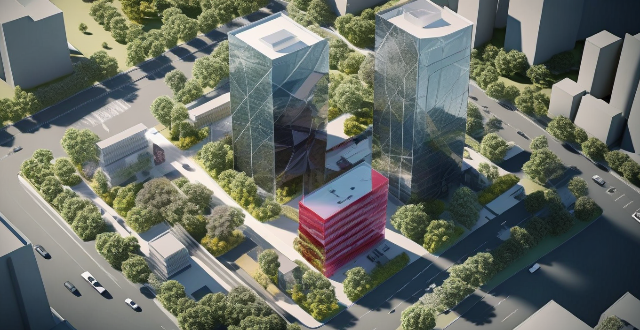Technology will have a significant impact on future city design and functionality, including the creation of energy-efficient and sustainable smart buildings, the adoption of autonomous vehicles to reduce congestion and redesign infrastructure, and the use of connectivity and data analytics for real-time information sharing and predictive maintenance. These changes will lead to more efficient, sustainable, and connected communities, but it is important to consider the long-term implications and work towards creating livable and equitable cities for all residents.

The Impact of Technology on Future City Design and Functionality
Introduction
As we look to the future, it is clear that technology will play a significant role in shaping the design and functionality of our cities. From smart buildings to autonomous vehicles, the integration of technology into urban planning and development will have far-reaching implications for how we live, work, and play.
Smart Buildings
Energy Efficiency
One of the most significant impacts of technology on future city design will be the creation of smart buildings. These buildings will be designed to optimize energy efficiency through the use of sensors, artificial intelligence (AI), and the Internet of Things (IoT). For example, smart thermostats can adjust the temperature based on occupancy levels, while smart lighting systems can automatically turn off lights when no one is in the room.
Sustainability
In addition to improving energy efficiency, smart buildings will also prioritize sustainability. This includes using renewable energy sources such as solar panels and wind turbines, as well as implementing green roofs and walls to reduce heat island effects.
Autonomous Vehicles
Reduced Congestion
Another major impact of technology on future city design will be the widespread adoption of autonomous vehicles. By reducing the need for human drivers, these vehicles have the potential to significantly reduce traffic congestion and improve overall transportation efficiency.
Redesigned Infrastructure
As autonomous vehicles become more prevalent, city infrastructure will need to be redesigned to accommodate them. This could include dedicated lanes for self-driving cars, as well as new parking structures that are optimized for autonomous vehicle storage.
Connectivity and Data Analytics
Real-Time Information Sharing
Technology will also play a crucial role in improving connectivity within future cities. Through the use of sensors, AI, and the IoT, city officials will be able to collect real-time data on everything from traffic patterns to air quality. This information can then be used to make informed decisions about urban planning and development.
Predictive Maintenance
Data analytics will also enable predictive maintenance, allowing city officials to identify potential issues before they become major problems. For example, sensors can detect leaks or other issues in water or sewage systems, allowing repairs to be made before a catastrophic failure occurs.
Conclusion
In conclusion, technology will have a profound impact on the design and functionality of future cities. From smart buildings to autonomous vehicles, the integration of technology into urban planning and development will lead to more efficient, sustainable, and connected communities. As we continue to advance technologically, it is essential that we consider the long-term implications of these changes and work towards creating cities that are not only modern but also livable and equitable for all residents.